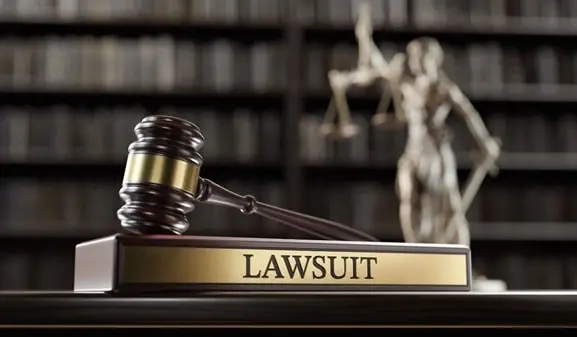The gaming world has been closely watching the ongoing legal dispute between Nexon, a South Korean video game giant, and Ironmace, a small indie studio, over allegations that have shaken the development of one of 2023’s most anticipated games, Dark and Darker. Nexon claims that Ironmace unlawfully used source code and assets from its unreleased project, known as Project P3, to develop Dark and Darker. This lawsuit has raised significant legal questions about copyright infringement, trade secrets, and unfair competition in the gaming industry.
Background: The Conflict Between Nexon and Ironmace
The conflict began in 2021 when two key developers, Ju-Hyun Choi and Terence Park, left Nexon after working on Project P3, a first-person medieval fantasy dungeon crawler that bears similarities to Dark and Darker. Soon after their departure, Ironmace was founded, with Choi and Park leading the development of Dark and Darker, which eventually caught the gaming community’s attention during its alpha release in 2023.
Nexon alleges that the former employees stole proprietary assets and ideas from Project P3, including source code, artwork, and design concepts, which were then used to create Dark and Darker. Nexon claims this is a blatant act of copyright infringement and trade secret misappropriation.
The Allegations and Nexon’s Legal Action
Nexon officially filed its lawsuit against Ironmace in April 2023, accusing the studio of developing Dark and Darker using stolen assets. The lawsuit demanded the game’s removal from Steam, leading to its temporary delisting in March 2023. Nexon also filed a preliminary injunction, requesting that the game’s development be halted and its service suspended until the legal proceedings concluded.
Nexon contends that Dark and Darker borrows heavily from Project P3, from character movements and in-game mechanics to core gameplay ideas. They further allege that Ironmace’s leadership illicitly transferred crucial development materials from Nexon to private servers before their termination, which they claim constitutes theft of trade secrets.
Ironmace’s Defense: Preservation of Innovation and Fair Use
Ironmace has firmly denied the allegations, arguing that Dark and Darker was independently developed. They claim that no stolen assets or code were used in the game’s creation. In their public statements, Ironmace accused Nexon of attempting to stifle competition by using legal threats against a smaller studio, calling it a case of corporate bullying.
In January 2024, Ironmace scored a significant victory when a Korean court dismissed Nexon’s preliminary injunction. The court ruled that Dark and Darker “cannot be considered an infringement of Nexon’s copyright or trade secret,” allowing the game’s continued development. However, this ruling only pertains to the injunction, and the primary lawsuit remains ongoing. Ironmace continues to express confidence that a thorough investigation will prove their innocence.
Unfair Competition Claims and the Complex Legal Battle
While the court dismissed the copyright infringement claims related to the preliminary injunction, it did not resolve the broader issue of unfair competition. Nexon insists that by leveraging insider knowledge from Project P3, Ironmace gained an unfair advantage in the competitive gaming market.
Ironmace, on the other hand, argues that the similarities between Dark and Darker and Project P3 stem from shared gaming genres rather than theft. Medieval fantasy dungeon crawlers are common in the industry, and many of the mechanics used in Dark and Darker—such as character movement and combat systems—are standard features in similar games.
Implications for the Gaming Industry
This case has far-reaching implications for the gaming industry, especially in how companies handle intellectual property, employee mobility, and the transfer of knowledge between studios. If Nexon succeeds, it could set a precedent for how large companies enforce intellectual property rights against former employees and competitors. On the other hand, a victory for Ironmace could protect indie developers from aggressive litigation that stifles innovation.
The legal battle also highlights the growing tension between corporate control over creative assets and the rights of developers to leverage their skills and experiences in new projects. As game development becomes more collaborative and globalized, the boundaries between individual creativity and corporate ownership are becoming increasingly blurred.
Conclusion
The Nexon vs. Ironmace lawsuit is a landmark case that could reshape the way intellectual property and trade secrets are handled in the gaming industry. With the preliminary injunction dismissed, Ironmace has won an important battle, but the war is far from over. As the main lawsuit continues, the industry will be watching closely to see how this complex dispute unfolds and what impact it may have on future game development and innovation.
Both sides have much at stake, and the final verdict could influence the balance of power between large publishers and small independent studios, ultimately affecting the creative freedom that drives the gaming world forward.


